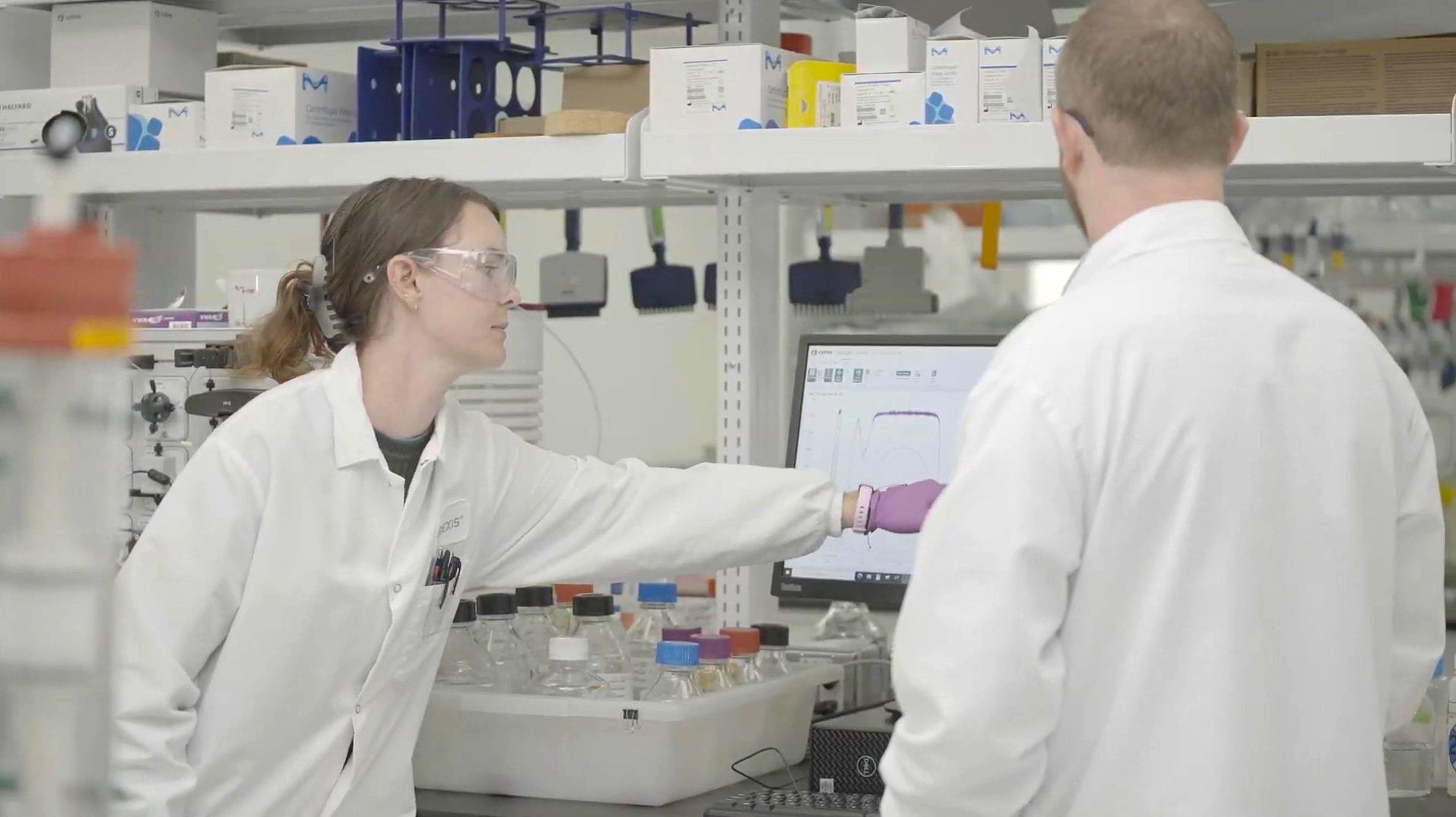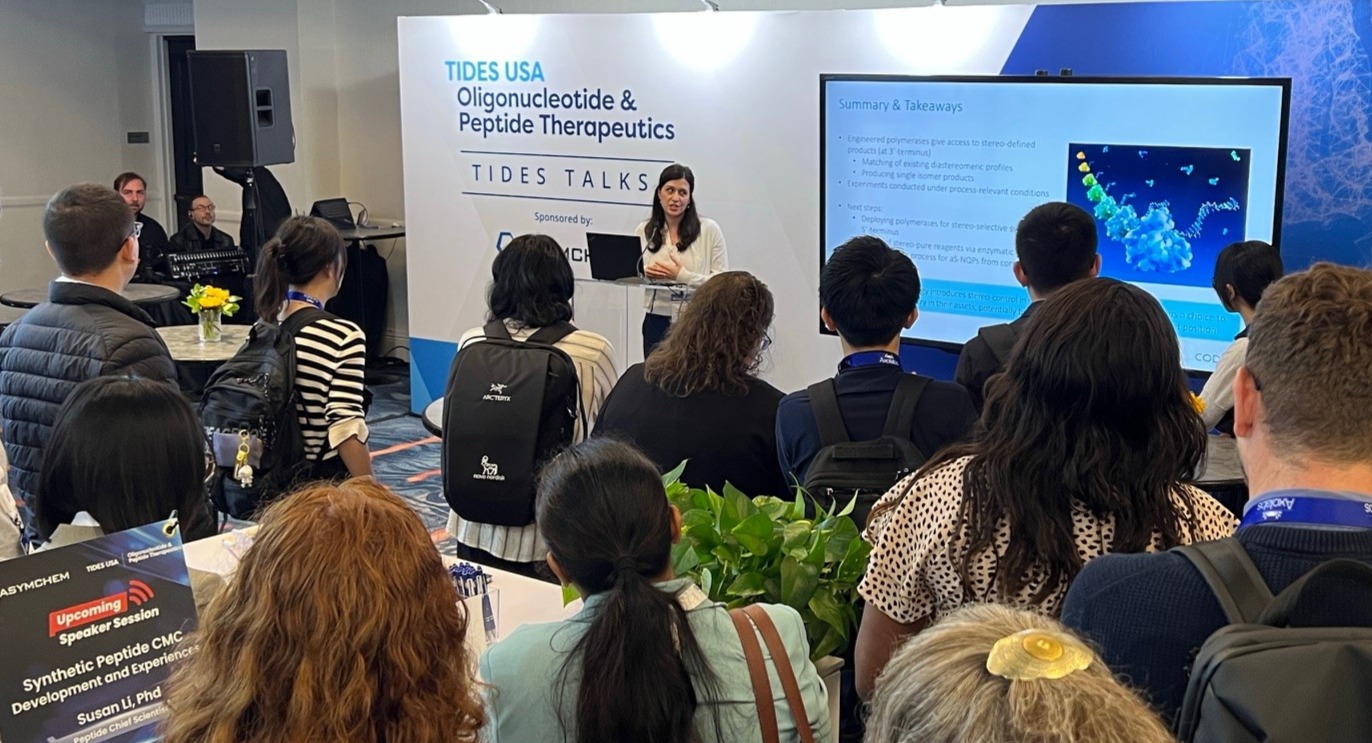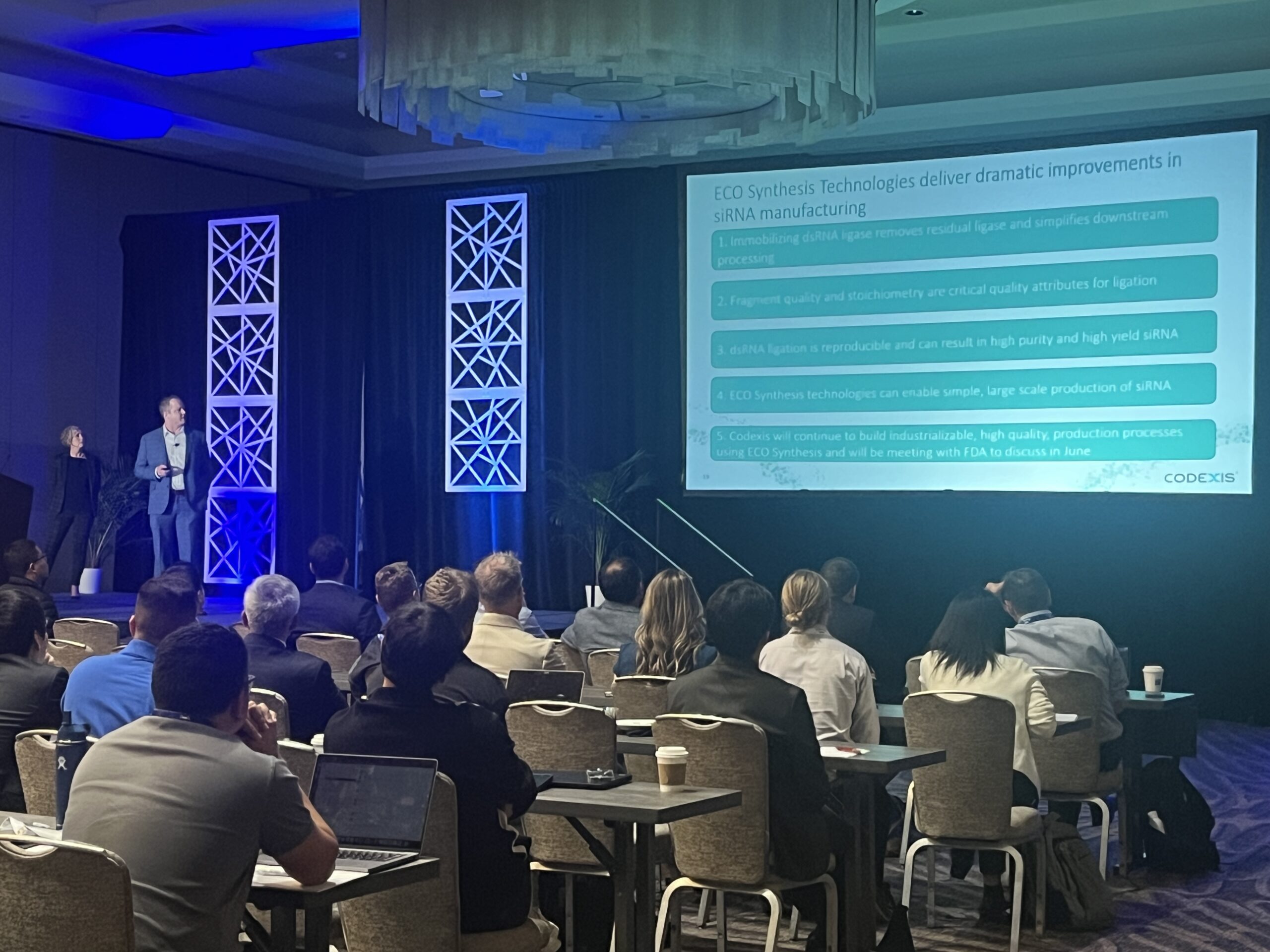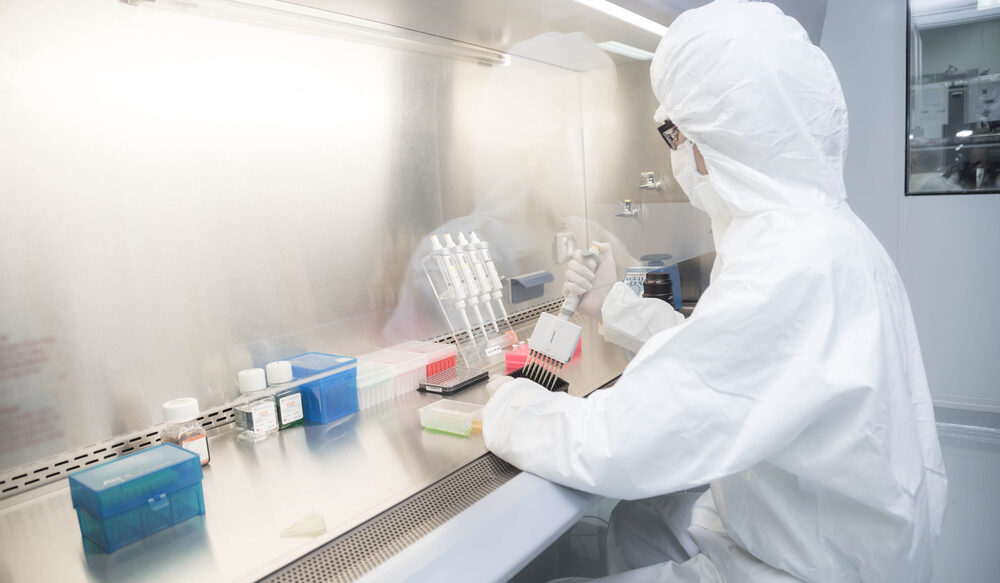Home / Expert Solutions / RNA Manufacturing Services
Step into the Future of RNAi
Codexis delivers scalable, sustainable enzymatic synthesis of therapeutic RNA.

Next-Generation RNA Manufacturing, Built to Scale
Evolve beyond traditional RNA synthesis with top-tier enzyme engineering enabling scalable, sustainable, high-quality, and efficient manufacturing. Our ECO Synthesis® Manufacturing Platform delivers efficient solutions that slot seamlessly into existing processes. This platform delivers scalable RNA manufacturing through greener, modular workflows — offering ligation-based and sequential synthesis options.
We deliver scalable RNA solutions that reduce process complexity, improve manufacture of RNA therapeutics, and accelerate the path from innovation to impact — with sustainability built in, not bolted on.
Why RNA Innovators Choose Codexis
Built for What’s Next
Our platform was intentionally engineered to make RNA therapies sustainable at scale.
Solutions for Tough Challenges
We create innovative solutions for RNA manufacturing
Faster, Cleaner, Scalable Results
Enzyme-powered processes deliver higher yield, fewer impurities, and repeatable success for therapeutic RNA manufacturing.
Decades of Enzyme Engineering
20+ years of enzyme engineering and redefining what’s possible in RNAi.
Explore RNA Solutions That Scale
From pilot scale to commercial manufacture, our enzyme-enabled services help you reach the clinic faster — and scale with confidence.
RNA Ligation Services
AI/Machine Learning-driven fragment design and bespoke ligase variant screening enable robust ligation workflows, built for scale-up and manufacturability.
RNA Sequential Synthesis Services
Our ECO Synthesis® Manufacturing Platform delivers scalable RNA manufacturing through greener, modular workflows — offering ligation-based and sequential synthesis options.
RNA Manufacturing FAQs
Have questions about our RNA manufacturing services?
We’ve answered the most common to the right. Need deeper insight or a custom quote? Our technical team is ready to help, contact us below.
A proprietary RNA manufacturing platform that integrates enzymatic sequential synthesis and ligation workflows — enabling higher yield, greater purity, and sustainable scalability.
Yes. Our ECO Synthesis® Innovation Lab enables enzymatic process design and optimization — supporting GLP scale synthesis and preparing workflows for tech transfer to commercial partners.
Yes — our library of engineered ligases are designed for tough sequences and scale-up readiness. We also provide enzyme evolution services to create a ligase tailored to your asset.
Primarily siRNA, with intake for gRNA and ASO projects.
A 20+ year legacy, industry-defining enzyme engineering platforms, and the science to solve what traditional methods can’t.
Explore RNA Manufacturing Innovation
Dive into case studies, publications, and data sheets demonstrating the science behind our RNA manufacturing solutions.






Let’s Build Your RNA Future
Our experts are ready to support your project. Let’s unlock the full potential of enzymatic RNA manufacturing — together.






